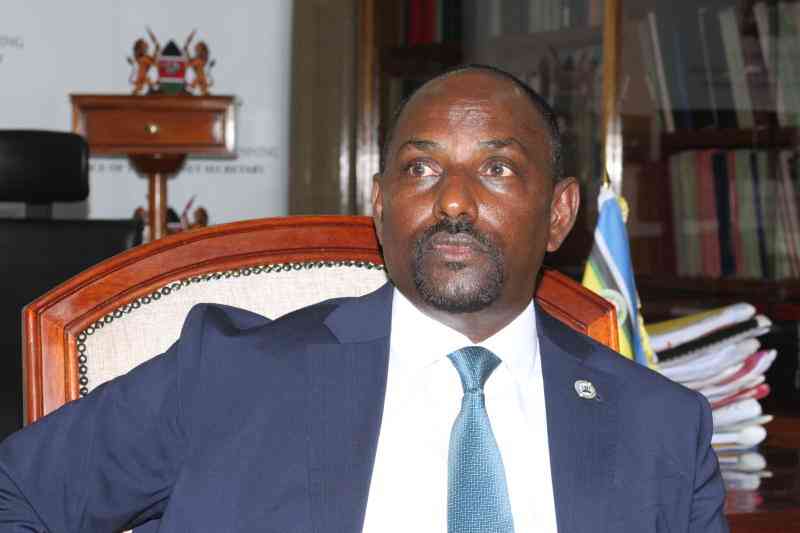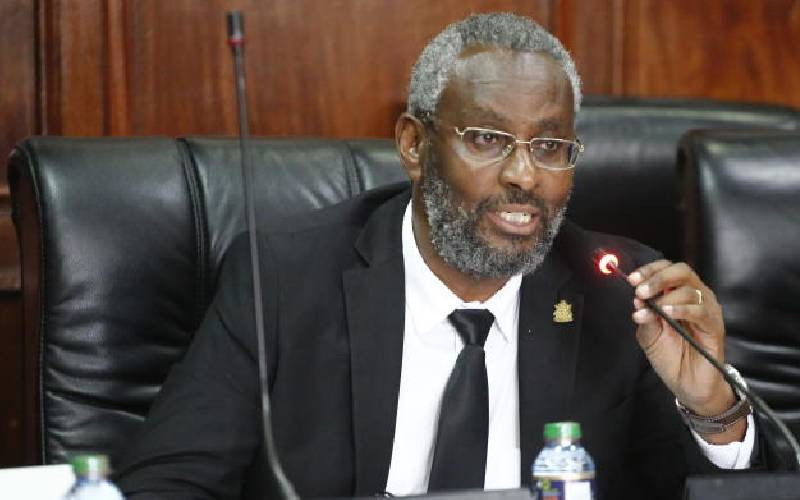By Macharia Kamau
The proposal to impose a 10 per cent excise duty on mobile money transactions may have earned Finance minister Njeru Githae a bad name in the telecoms sector.
While they may not say it aloud, players largely think of him as the Grinch bent on ‘killing’ a tech innovation that has given the unbanked population access to financial services, previously ignored by mainstream financial service providers. The plan by Treasury is to get an additional Sh4.5 billion this financial year in tax revenues from mobile operators. This is being seen as regressive, not just by the local ICT industry but by the international tech community, with the GSM Association recently adding its voice to the issue.
Tax burden
The minister does not stop at his proposal to tax mobile money transactions. He also wants to set a minimum amount which mobile operators charge to net firms offering money transfer services for free. Airtel and yu have been not been charging their clients for money transfer services on their respective networks, which Githae said is a ploy to avoid paying taxes. Telecommunication firms are in agreement that the excise duty will be bad for everyone on the chain, which is a rarity in the industry where the telcos seem to always be at each other’s throat.
And now the GSMA – the global lobby for mobile operators – has added its voice to the issue noting that taxing mobile money services would jeopardise the nascent mobile money market. “It’s hard to understand the rationale of this new tax on a service that is greatly benefiting the whole Kenyan society. Voice services in Kenya are taxed at a rate of 26 per cent (16 per cent VAT + 10 per cent excise duty),” said Simone di Castri, regulatory director GSMA in a statement last week.
“Adding this new 10 per cent tax on mobile money transactions will stifle a nascent and important driver of commerce and socio-economic development. Unfortunately there was no consultation or engagement with stakeholders before the amendment was introduced.” Bob Collymore, chief executive officer, Safaricom said, “We are sympathetic to the revenue challenges that the Government faces and will be engaging in a constructive dialogue with the ministry on how best to implement this.”
“A couple of points we would like to make are that we need to ensure that as a nation we do not lose the momentum we have achieved in the development of mobile money and its positive impact on the economy as a whole.” “We do not welcome the proposal to levy a 10 per cent tax on mobile money services. As investors, stability in policy making is key in planning our future investment programmes and a move like this will impact negatively on our plans that are already in place,” Madhur Taneja country manager yuMobile, said.
Angela Nganga Mumo chief communications officer at Telkom Kenya said, “We understand where the government is coming from... it has been collecting less revenues from the industry since the price wars that brought calling rates significantly down.” “But also note that mobile operators get small margins on mobile money transactions since the charges are also low so it would be difficult to absorb the costs and it is likely that it will be passed on to consumers.”
Investment analyst Aly Khan Satchu termed it as taxing financial inclusion, noting that in the five years they have been around, mobile money transfer services have done a lot in helping Kenyans access financial services than any other intervention by Government or private sector. While money transfer services were meant to make it easier to send money between customers, users have used them as saving tools.
“The mobile money phenomenon and more so M-Pesa, has proven an extraordinary tipping agent in many respects. Firstly, it has lifted financial inclusion rates in Kenya to a level that is off the charts at our per capita GDP price point,” said Satchu.
“Banking the unbanked is always cited as one of the key issues in emerging and frontier markets and in this respect we are leaders in the world.”
He added that it is something that the country needs to nurture and even incentivise, rather than taxation. “It is a golden goose of a miraculous nature and to impose a tax on such an important societal thing seems to me to be regressive,” said Satchu.
“Such a move looks like taxing financial inclusion. We have to be very careful that this does not become a brake on one of our greatest innovations. It is this Innovation which has popped us onto the Global Radar and has proven more effective at rebranding Kenya as 21st century country than any other effort I can think of.”
“The tax extends to a host of financial transactions not just mobile money transfers. Given the success of excise tax on air time and the number of transactions that pass through mobile money transfer, the introduction of this new tax is a logical extension,” said Nikhil Hiran, Tax Partner at Deloitte East Africa.
Stay informed. Subscribe to our newsletter
“Clearly the cost of money transfers and indeed bank transactions will increase by 10 per cent which in all likelihood will be passed to the consumer. The concern must be that for the poor in our society this will result in a price rise.” “My personal view is that there is nothing wrong with this and there is nothing in the law that prevents it. Of course for any business, this cannot be a sustainable model in the long run,” he said.
 The Standard Group Plc is a
multi-media organization with investments in media platforms spanning newspaper
print operations, television, radio broadcasting, digital and online services. The
Standard Group is recognized as a leading multi-media house in Kenya with a key
influence in matters of national and international interest.
The Standard Group Plc is a
multi-media organization with investments in media platforms spanning newspaper
print operations, television, radio broadcasting, digital and online services. The
Standard Group is recognized as a leading multi-media house in Kenya with a key
influence in matters of national and international interest.
 The Standard Group Plc is a
multi-media organization with investments in media platforms spanning newspaper
print operations, television, radio broadcasting, digital and online services. The
Standard Group is recognized as a leading multi-media house in Kenya with a key
influence in matters of national and international interest.
The Standard Group Plc is a
multi-media organization with investments in media platforms spanning newspaper
print operations, television, radio broadcasting, digital and online services. The
Standard Group is recognized as a leading multi-media house in Kenya with a key
influence in matters of national and international interest.









